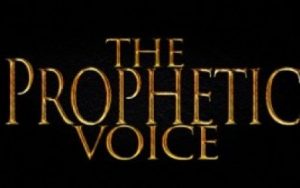Wisdom-Trek / Creating a Legacy
Welcome to Day 1336 of our Wisdom-Trek, and thank you for joining me.
I am Guthrie Chamberlain, Your Guide to Wisdom
Mastering the Bible – Prophecy and Prophets – Worldview Wednesday
Wisdom – the final frontier to true knowledge. Welcome to Wisdom-Trek! Where our mission is to create a legacy of wisdom, to seek out discernment and insights, to boldly grow where few have chosen to grow before. Hello, my friend, I am Guthrie Chamberlain, your captain on our journey to increase Wisdom and Create a Living Legacy. Thank you for joining us today as we explore wisdom on our 2nd millennium of podcasts. This is Day 1336 of our Trek, and it is Worldview Wednesday. Creating a Biblical Worldview is important to have a proper perspective on today’s current events. To establish a Biblical Worldview, it is required that you also have a proper understanding of God and His Word. Our focus for the next several months on Worldview Wednesday is Mastering the Bible, through a series of brief insights. These insights are extracted from a book of the same title from one of today’s most prominent Hebrew Scholars, Dr. Micheal S. Heiser. This book is a collection of insights designed to help you understand the Bible better. When we let the Bible be what it is, we can understand it as the original readers did, and as its writers intended. Each week we will explore two insights.
Mastering The Bible – Prophecy and Prophets
Insight Forty-Three: Most of the Material in the Prophetic Books Isn’t about Predicting the Future
 As we begin a new section in Dr. Heiser’s book, our focus now turns to the prophets of the Old Testament. In popular usage, Christian or otherwise, the word “prophet” is associated with foretelling the future. That’s understandable when it comes to the Bible, since both testaments have prophetic figures making predictive statements about what will come to pass in the future. Despite that truth, it doesn’t take long when reading the prophets to discern that most of what they do isn’t about predicting anything. More than anything else, prophets were actually preachers. Scholars like to say that a prophet spent more time “forth-telling” than “fore-telling.”
As we begin a new section in Dr. Heiser’s book, our focus now turns to the prophets of the Old Testament. In popular usage, Christian or otherwise, the word “prophet” is associated with foretelling the future. That’s understandable when it comes to the Bible, since both testaments have prophetic figures making predictive statements about what will come to pass in the future. Despite that truth, it doesn’t take long when reading the prophets to discern that most of what they do isn’t about predicting anything. More than anything else, prophets were actually preachers. Scholars like to say that a prophet spent more time “forth-telling” than “fore-telling.”
What did prophets preach about? Righteousness, mostly. To be more precise, prophets spent most of their ministry railing against the sin and idolatry of the people of Israel and Judah. They were constantly reminding the people of their covenant relationship to God—how they had been rescued from Egypt, delivered at the Red Sea, and given the Law so that they could live happy, productive lives in accord with the God who loved them.
Israel, as a nation, had publicly proclaimed at Sinai that they would obey God’s law (Exodus 24). Prophets were vocal reminders of that promise. In that respect, they were basically covenant enforcers. They demanded that the people honor their relationship to God. In essence, they were preachers. It’s because of this role that we have the modern expression about “speaking with a prophetic voice.” When you hear that phrase, it doesn’t concern predicting the future. Rather, the point is that some man or woman is bold enough to tell the truth when it’s unpopular or even dangerous. That’s what prophets did, and they paid dearly for it.
It’s because of this role that we have the modern expression about “speaking with a prophetic voice.” When you hear that phrase, it doesn’t concern predicting the future. Rather, the point is that some man or woman is bold enough to tell the truth when it’s unpopular or even dangerous. That’s what prophets did, and they paid dearly for it.
Modern Bible readers have largely lost the correct orientation for reading the prophets. Talk about the future and discerning “the signs of the times” is more titillating than having someone tell you about your sin. But that’s crucial for walking with God. Someone needs to tell the truth. Prophets didn’t do it because they enjoyed it. They knew their ministry wasn’t going to make them popular. They did it because God wanted to rescue people from judgment.
That alone is a lesson for us today. Most contemporary preaching is about making us feel good about ourselves. There is no warning. It’s more important to realize that God loves us and wants us to turn from sin so he can bless us. Our Maker knows that a clear conscience and forgiveness are keys to happiness on earth.
Without a prophetic voice, we deceive ourselves into defining a rewarding life as self-gratification and “looking out for number one.” The prophets force us to be honest with ourselves and with God. We can heed their words or reap what we sow. May Scripture awaken us to return to a forgiving God and trusting Him with life and salvation.
Insight Forty-Four: Prophets Weren’t Crazy Men…Mostly
 One of the themes in the academic study of the prophets is the ecstatic behavior of prophetic figures. Prophets fell into trances, convulsed, and participated in otherwise strange conduct. The idea stems in large part from ancient Near Eastern parallels that refer to such figures with a vocabulary similar or identical to that found in the Old Testament.
One of the themes in the academic study of the prophets is the ecstatic behavior of prophetic figures. Prophets fell into trances, convulsed, and participated in otherwise strange conduct. The idea stems in large part from ancient Near Eastern parallels that refer to such figures with a vocabulary similar or identical to that found in the Old Testament.
The notion might sound odd, but there is biblical precedent for it. For example, prior to becoming Israel’s first king, an episode in Saul’s life gives us some insight in 1 Samuel 10:9-11:
As Saul turned and started to leave, God gave him a new heart, and all Samuel’s signs were fulfilled that day. When Saul and his servant arrived at Gibeah, they saw a group of prophets coming toward them. Then the Spirit of God came powerfully upon Saul, and he, too, began to prophesy. When those who knew Saul heard about it, they exclaimed, “What? Is even Saul a prophet? How did the son of Kish become a prophet?”
Elsewhere in the Old Testament, the coming of the Spirit on a person enabled superhuman strength, such as with Samson In Judges 14:6, 19. There was also special wisdom in Isaiah 11:2, and visions in Ezekiel 37. It was often associated with divine enablement for a specific task, like kingship 1 Samuel 16:13-14, and judgeship Judges 3:10; 6:34). The notion of ecstatic behavior, however, more clearly comes from the odd behavior of certain prophets.
Ezekiel is likely the most familiar example of strange prophetic conduct. God told Ezekiel to do several strange things. Ezekiel was told to draw a picture of the city of Jerusalem on a brick tablet and then smash it as a visual aid of how the city would be under siege in Ezekiel 4:1-3. God commanded him to lie on his left side for 390 days, and then forty more on his right side to symbolically commemorate Judah’s punishment in exile in Ezekiel 4:4-8. Ezekiel shaved his head with a sword, then after dividing the hair into three piles, burnt a third, hacked another third with the sword, and scattered the rest into the wind. This was another illustration of what would happen to Judah and its population. This story is found in Ezekiel 5:1-12. On yet another occasion, God told him to publicly dig through a wall and escape through it with the baggage of an exile in Ezekiel 12:1-12. If the themes of his behavior hadn’t been so disturbing, he’d have been a source of regular entertainment.
Ezekiel isn’t the norm, though. The prophecy was mostly about preaching, not unusual abilities to predict the future, or performing bizarre and symbolic acts. Some prophets did such things; some did not. In any regard, they were not mentally unbalanced. Whatever God told them to do, or when the Spirit came upon them, there was a point to it. God had a message, and that message needed to be taken seriously.
That will conclude this week’s lesson on another two insights from Dr. Heiser’s book “Mastering The Bible.” Next Worldview Wednesday, we will continue with two additional insights. I believe you will find each Worldview Wednesday an interesting topic to consider as we build our Biblical worldview.
Tomorrow we will continue with our 3-minute Humor nugget that will provide you with a bit of cheer, which will help you to lighten up and live a rich and satisfying life. So encourage your friends and family to join us and then come along with us tomorrow for another day of ‘Wisdom-Trek, Creating a Legacy.’ If you would like to listen to any of our past 1335 treks or read the Wisdom Journal, they are available at Wisdom-Trek.com. I encourage you to subscribe to Wisdom-Trek on your favorite podcast player so that each day’s trek will be downloaded automatically.
If you would like to listen to any of our past 1335 treks or read the Wisdom Journal, they are available at Wisdom-Trek.com. I encourage you to subscribe to Wisdom-Trek on your favorite podcast player so that each day’s trek will be downloaded automatically.
Thank you so much for allowing me to be your guide, mentor, and, most of all, your friend as I serve you in through this Wisdom-Trek podcast and journal.
As we take this Trek together, let us always:
- Live Abundantly (Fully)
- Love Unconditionally
- Listen Intentionally
- Learn Continuously
- Lend to others Generously
- Lead with Integrity
- Leave a Living Legacy Each Day
I am Guthrie Chamberlain….reminding you to ’Keep Moving Forward,’ ‘Enjoy your Journey,’ and ‘Create a Great Day…Everyday’! See you Tomorrow!
Leave a Reply